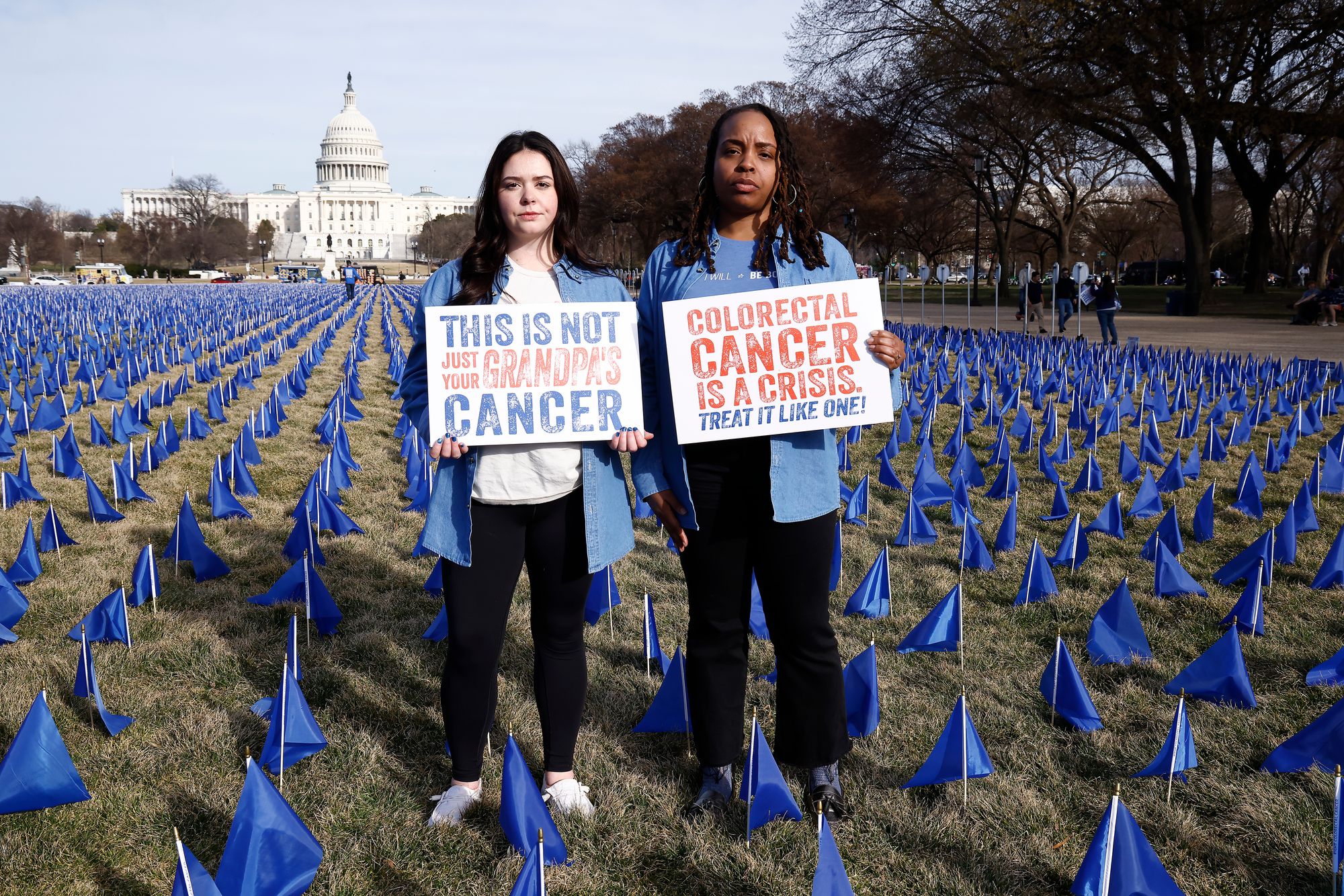
More young adults in the U.S. are getting cancer, and experts don’t know why.
A dozen forms of the disease have risen among Americans under the age of 50 over the last decade, according to doctors, with the largest surges in female breast cancer and colorectal cancer.
Oncologists have found that this surge disproportionately affects women with rates of new diagnoses 82 percent higher than in men, according to a January report from American Cancer Society.
The concerning trends come even as overall cancer deaths have plummeted, dropping by 34 percent between 1991 and 2022.
“This is serious and worrisome,” Dr. Shari Goldfarb, a breast cancer doctor at New York City’s Memorial Sloane Kettering Cancer Center, said in a statement.
Breast, uterine, kidney, and colorectal cancer have all been diagnosed more frequently in young adults over the last decade, according to National Institutes of Health research.
A separate study, from institutions across the U.S., reported a 50 percent relative increase in colorectal cancer rates in younger adults between 2021 and 2022 that came after the recommended screening age was lowered from 50 to 45.
Expanded screening and better detection may offer two explanations for more “early-onset” cases — referring to those in people under 50 — but doctors say there have to be additional explanations.
Some oncologists say they’ve already ruled out genetics.
“Our genome just doesn’t change so quickly over several decades,” Dr. lrike Peters, of Seattle’s Fred Hutch Cancer Center, told the National Cancer Institute.
There are also indications that at least colorectal cancer can behave differently in younger people, Dr. Rihab Yassin, of the institute’s Division of Cancer Biology, noted. It has physical characteristics associated with aggressive tumors, for example, and colorectal cancer death rates have surged.
Last year, there were an estimated 152,810 new cases and 53,010 deaths, compared to 52,550 deaths in 2023, according to the Colorectal Cancer Alliance. This year, the American Cancer Society projects there will be more than 154,000 cases.

Dozens of past studies have linked the rise in cancer among young adults to obesity, alcohol consumption, and microplastic pollution. All of these factors can affect bacteria in the gut and be a source of harmful inflammation. Poor gut health and inflammation have both been linked to cancer.
The evidence tying obesity, drinking alcohol, and a bad diet to early-onset cancer is fairly strong, Yin Cao, an associate professor of surgery at Washington University in St. Louis, told The New York Times.
Women are heavier drinkers now than they were just 20 years ago and rates of obesity and microplastic pollution exposure have also risen. Some 40 percent of Americans are considered to be obese and microplastics have been found everywhere – in the air, water, and human organs.
Dr. Y. Nancy You, a colorectal cancer specialist at the University of Texas MD Anderson Cancer Center, told the National Cancer Institute that she believes the answer is a “whole package” of common factors.
“I don’t think there’s going to be a single ‘smoking gun,’” she said. “It’s the million-dollar question everybody [is asking]. But it’s a long-horizon answer.”
The U.S. expects more than two million new cases by the end of the year and 618,120 deaths.




